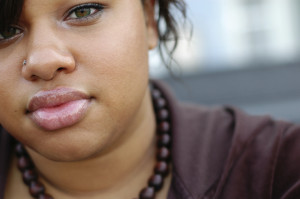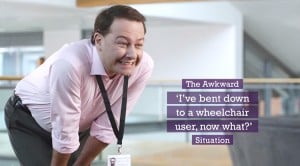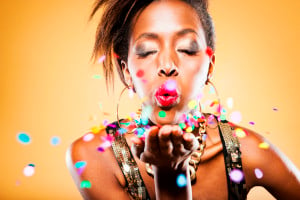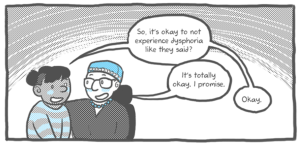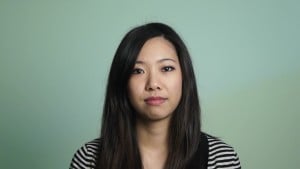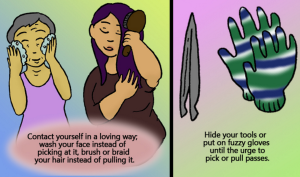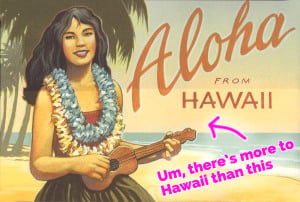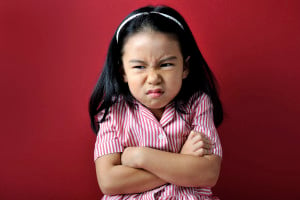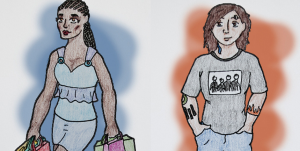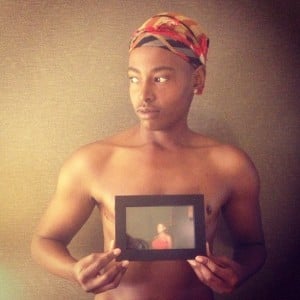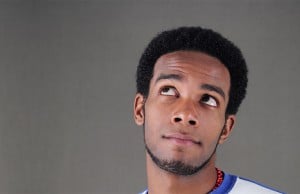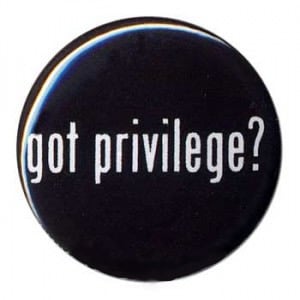Black women often lead the demand for justice of many other marginalized groups, but we are usually left alone when seeking justice for ourselves.
Our leadership roles in movements throughout history have been erased along with our abuse, but even as today’s Black Liberation Movement praises our leadership, we still struggle for recognition of our pain.
For example, even though some of today’s most recognized Black activist organizations are led by Black women such as Black Lives Matter, Black Youth Project 100, and the BlackOUT Collective, when an action was organized in New York honoring Rekia Boyd, a 22-year old Black woman killed by an off-duty cop, no one showed up.
I found myself in tears as I sat behind my desk at work reading disheartening tweets of the few people who attended the rally for Rekia.
Rekia, a young Chicago native, could have been me. And much like what happened to Rekia, it’s a huge possibility that no one would have shown up for me.
Watching so few people show support for Rekia made me completely rethink my approach to advocating for Black women. In the past, I sometimes begrudgingly conceded when my input on including Black women was seen as derailment. Not anymore.
In May, I wrote a piece painfully detailing the historical erasure of Black women in the ongoing Black Resistance Movement and mainstream White Feminism™.
From the abolitionist movement to the Civil Rights Movement, Black women were asked shrink our space at the table. We resisted then, and we must resist now.
In holding people accountable, we must also be conscious of our part in somewhat supporting narratives that exclude us from organizing issues. It is entirely okay to remove ourselves from or dissent in spaces that do not seek to acknowledge our existence.
The uprisings in Ferguson, Baltimore, and other major cities drew the national spotlight to address anti-Black motivated state sanctioned violence, largely focusing on Black men victims.
There are tons of articles exploring the systemic oppression of Black people in America that present Black men’s experiences as the Black experience.
These articles exclude the different ways that race-based oppression is experienced for people who are also marginalized based on gender and sexual orientation.
State violence – violence approved or funded by the government most often targeting marginalized groups – against Black communities in America includes brute forms such as chattel slavery, Black Codes, Jim Crow, and racist policing.
It also shows up less blatantly, such as with felon disenfranchisement, gerrymandering to limit political power, and defunding public school systems that primarily serve people of color.
For Black women the experience of state violence manifests in many ways, such as being punished for Black motherhood.
Take the Ohio Black mom who was jailed for misrepresenting her residency to put her daughters in a better school district. In a country that we know regularly cuts resources from Black school districts, Kelly Williams-Bolar has been demonized for saying that Black children deserve more than just crumbs.
Or the single mother who was arrested for “abandoning” her children in a mall food court while she was in an job interview thirty feet away. Laura Browder was penalized for not being able to afford childcare, something most working class people cannot afford.
State-sanctioned violence against Black women is woefully pushed to the sidelines in media, academia, and organizing.
It’s treated as a footnote in a larger narrative, and rarely does our systemic abuse receive universal outcry or attention. And although the term state sanctioned violence is usually used to refer to physical force, truthfully, it takes many forms.
Below we’re going to address three ways in which Black women are victims of state violence.
1. Thousands of Black Women Are Locked Out of Mainstream Society
In The New Jim Crow, Michelle Alexander walks us through the development of the system of social control instituted after the Jim Crow era – mass incarceration.
Alexander’s book focuses solely on Black men’s experience, but Black women are also drastically swept into prisons and left disenfranchised.
By 2001, 1 in 19 Black women could expect to be incarcerated compared to 1 in 45 for Latina women and a whopping 1 in 118 to white women. Black women were also three times as likely to be incarcerated than white women in 2010.
The “War on Drugs” is unlike the sort of policing where 911 is called and a crime is reported. It’s not about protecting us.
Instead, police choose their targets in the drug war, allowing them to define signs of criminality when engaging Black people or Black neighborhoods.
For Black women, being in public spaces makes us vulnerable to police harassment, arrest, and even sexual assault. Some of us tragically don’t live beyond their interaction with police even once they enter jail cell.
But because discussions of incarceration most often focus on Black men, our stories are often ignored although we are also targets of the same system as our brothers.
Despite reports of Black women’s prison population since decreasing, we are still disproportionately jailed and twice as likely to be incarcerated than white women today.
The structural barriers of the felon stigma compound existing barriers against Black women who are returning citizens.
As the Legal Action Center notes, felons are legally stripped of citizenship rights including voter disenfranchisement, lifetime bans of public benefits, employment and housing discrimination, as well as barred from borrowing student loans.
This means Black women who are released from prison have even less resources available to them in rebuilding their lives.
And for those who return home to poor areas or have families, the chances to make ends meet shrink more and more.
The stigma of imprisonment is used to justify the mistreatment of Black women, barring many from participating in mainstream society.
The “felon” label makes these sisters’ struggles near invisible in a society that blames them for not conquering a system built against them.
2. From School to the Workforce, Black Girls and Women Are Devalued
The critical space of education inequality remains somewhat separated from state violence conversations in today’s discourse.
But the severe discipline of Black girls in lower education and burdening of student loan debt in higher education unleash multi-pronged attacks on Black women’s livelihoods.
The Black Girls Matter report released last year details the crisis of Black girls in schools across the nation that many of us already knew.
With stereotypes of Black unruliness at work, Black girls are punished more gravely than white girls – in Boston and Illinois, they were up to eleven times more likely to be disciplined than white girls between 2011 and 2012 and twelve times more likely to be suspended from school.
Black girls are disproportionately reprimanded at a rate that is only comparable to Black boys. At a young age, Black girls learn the world is a violent space for us.
The report confirms that targeting Black girls with punitive measures contributes to putting them at risk for dropping out.
It’s any wonder how so many Black girls manage to stand up straight in the crooked rooms we’re forced into and achieve beyond the means afforded to us.
We are stripped of childhood and treated as criminals, preparing us for a world that devalues our worth as women only to strip us yet again of economic opportunities necessary to survive in a capitalistic society.
In news that makes us gleam with pride, Black women are reported to be the most educated group in America with a higher percentage of Black women enrolled in college than any other group.
But as many of us well know, we are still unable to entirely escape the crooked room given that overachieving in higher education comes at a great cost to us.
Black women earn 64 cents to every dollar paid to white men compared to 77 cents for white women. And as Black communities are known to struggle with economic resources, more education means more Black women leave universities laden in student loan debt only to take jobs that pay us less than white counterparts – if we even are hired at all.
According to ThinkProgress, Black women “experience high unemployment rates, with a 9.9% rate compared to 5.1% for white women.”
Hence, job seeking can be daunting.
Aware that we’re facing glaring racial and gender discrimination, we rack our brains with questions preparing ourselves for the disappointment of being qualified but unemployable: “Does my name sound too Black? What will they think of my hair? I bet they would pay a man more, should negotiate? What if I lose the offer?”
For Jamilah DaCosta, who applied to work the counter at a cake shop, these fears were confirmed when she says she showed up to an interview and was quite simply told, “I can’t hire you because you’re Black.”
“Before I could even pull out my resume or start a formal interview, she was telling me all this negative stuff — she couldn’t hire me because I was black, I would scare away her customers,” she says.
Jamilah’s experience of being disqualified is horrifying, but not entirely unique.
Throughout our lives, Black women are incessantly prevented from seeking opportunities we would excel at, in school to employment.
3. Black Reproductive Justice Matters
At this point, it may feel like personal lives are the only space Black women can exercise true autonomy. But for many of us, private has become public domain as we’re denied control over our own bodies.
Recent attempts to restrict women’s access to contraception and abortions, including attempts to gut Planned Parenthood, most severely affect women of color and poor women.
For Black girls and women, not having access to proper reproductive healthcare can cause avoidable conditions and unwanted pregnancies.
How can we be expected to care for ourselves or our children in conditions of low-wage jobs, discrimination, and extreme debt?
The fear of being forced to raise children in conditions of poverty, police terror, and a hostile education system is essentially a form of vicious psychological warfare by the state.
Black women are characterized as criminals from lower education to adulthood and systemically restricted from being compensated for our labor in a concerted effort to subjugate us.
Tropes such as the myth of the “welfare queen” have historically painted the picture that Black women lazily fail to achieve success.
Yet it is painstakingly clear that the we are victims of intricately weaved state violence extending far beyond police killings.
Our Blackness and womanhood doubly marginalize us serving as the pretext for utter disregard of this violence to which we are subjected. This state of emergency Black women are in deserves recognition and need not serve any longer as a mere backdrop to Black men’s issues.
What Can We Do?
The protests demanding an end to police terror that uplift the names of victims like Mike Brown and Freddie Gray have activated thousands to stand up against state violence.
However, a sustainable movement must grow beyond an individual narrative to address how these institutions work collectively to suppress politically weak communities.
If the activist community truly intends to combat systemic oppression and its institutions, we must be willing to do the work of political education to extend the narrative past a singular issue.
As Black women are the driving force of Black activism in America, we must organize around our violent experiences within America’s institutions.
People quickly praise Black women when our labor is useful, but they dismiss our pain or plainly neglect it in their organizing efforts. We have to accept that it is okay to be unapologetic in organizing around our experiences and uncompromising in demanding inclusion.
This is not about politeness, it is about survival. As Black women we often have to protect each other when no one else will, let’s bring that survival mentality into leadership spaces of the 21st century Black Liberation Movement.
[do_widget id=’text-101′]
Janessa E. Robinson is a Chicago native. She earned her Bachelor of Arts degree in Communication with a minor in Philosophy from Tulane University in New Orleans, LA. She is a Black feminist and social justice activist. She currently resides in Washington, D.C.
Search our 3000+ articles!
Read our articles about:
Our online racial justice training
Used by hundreds of universities, non-profits, and businesses.
Click to learn more
Most Read Articles
- « Previous
- 1
- …
- 30
- 31
- 32


